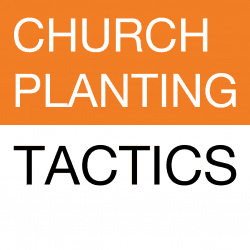by Patrick Bradley: Some church groups and denominations have set up an umbrella 501c3 exemption for their churches. There are pros and cons for your church plant if you choose this option.

501c3 is the official nonprofit, tax-exempt status of a charity that allows you to accept charitable donations, issue donation receipts, and not pay taxes as an organization.
There are 3 ways to get a 501c3 exemption for your church plant:
Rely on the automatic blanket exemption
Apply for your own Determination Letter
Use an umbrella 501c3 exemption
The Umbrella 501c3 Exemption
The idea of the umbrella 501c3 exemption is that a denomination or parent organization applies for a special group exemption for their churches. Individual congregations don’t have to apply to the IRS. The denomination keeps track of which churches are part of their fellowship and issues some kind of annual accounting to the IRS.
Each congregation stills incorporates individually, adopts their own bylaws and all that. But they get a copy of the denomination’s 501c3 Exemption Letter and something on denomination letterhead that says, “they’re one of us.”
Umbrella 501c3 Exemption Pros
For the church plant, this is a way faster. Like same-day faster: all you need is the paperwork (above) from the denomination and you’re good to go. Those applying to the IRS directly can expect to wait as much as 6 months to hear back.
And your denomination probably won’t charge you anything. The IRS charges $850 to review your 501c3 application when you apply individually.
Umbrella 501c3 Exemption Cons
The drawback for church plants is that it often creates confusion when you go to ask for charitable donations. Which can happen in 2 ways:
The business you’re courting doesn’t understand why the name on the Exemption Letter (the denomination) doesn’t match your church’s name
The application is online and they can’t find your church’s EIN in the IRS database (only your denomination’s EIN is listed there) – donors like Google and TechSoup don’t seem to make accommodations for this
Other Considerations
You will owe some kind of monthly or annual report to your denomination. They have to keep track of the churches under their umbrella or risk losing the group exemption. Reporting isn’t inherently good or bad – it provides communication, connection and accountability while creating administrative burden. But you should be creating some kind of reporting on your metrics anyway.
There may also be an expectation that you share resources back to the denomination. That can be a very Kingdom-minded thing to do; the collective shared resources of a group of churches can accomplish a lot of good.
One way for you to approach this if you’re part of a denomination or group like this is to join their umbrella 501c3 exemption from day one. Then at any later point you can apply directly for an individual exemption and your very own Determination Letter.
But time is money: The IRS applications aren’t getting any cheaper and every year you delay is a year you won’t qualify for some donations. Also, it’s easier to apply early in the life of your church – brand new churches get to submit proposed budgets, but established churches have to submit financial reports & history.
So pay your money, take your choice.
The post Should You Use Your Group’s Umbrella 501c3 Exemption? appeared first on Church Planting Tactics.
Source: Should You Use Your Group’s Umbrella 501c3 Exemption?
